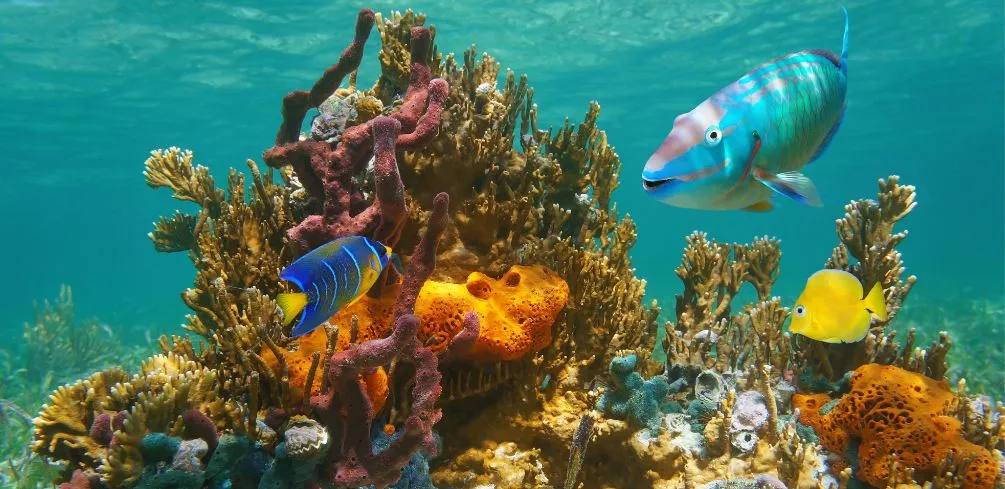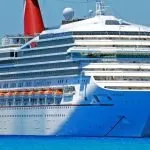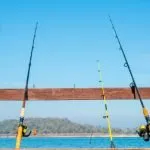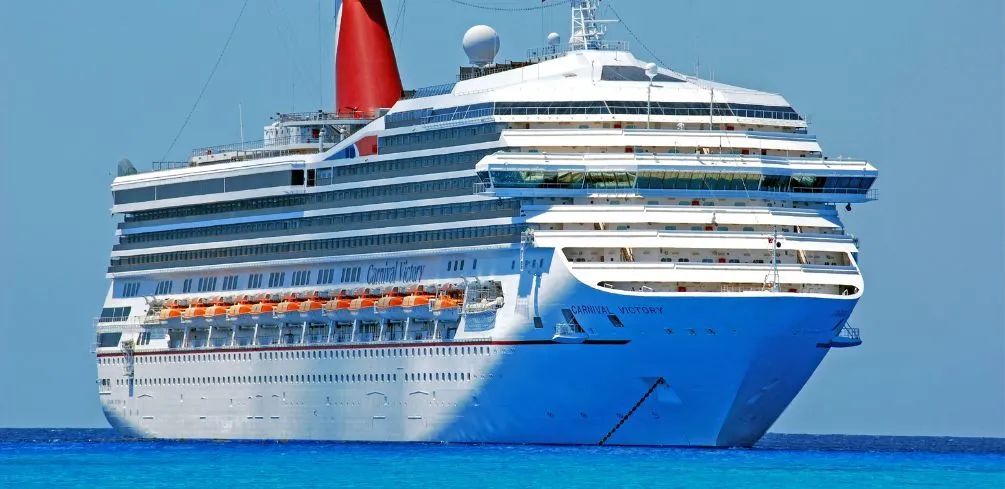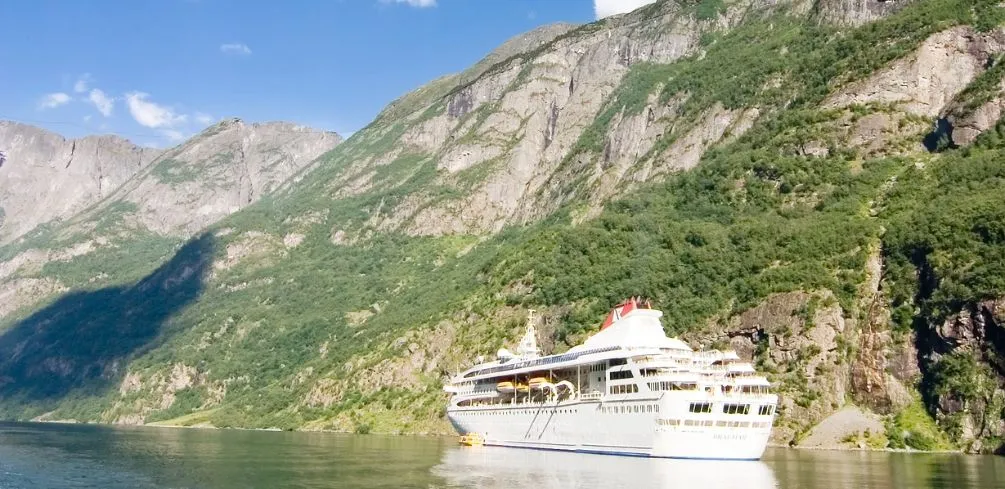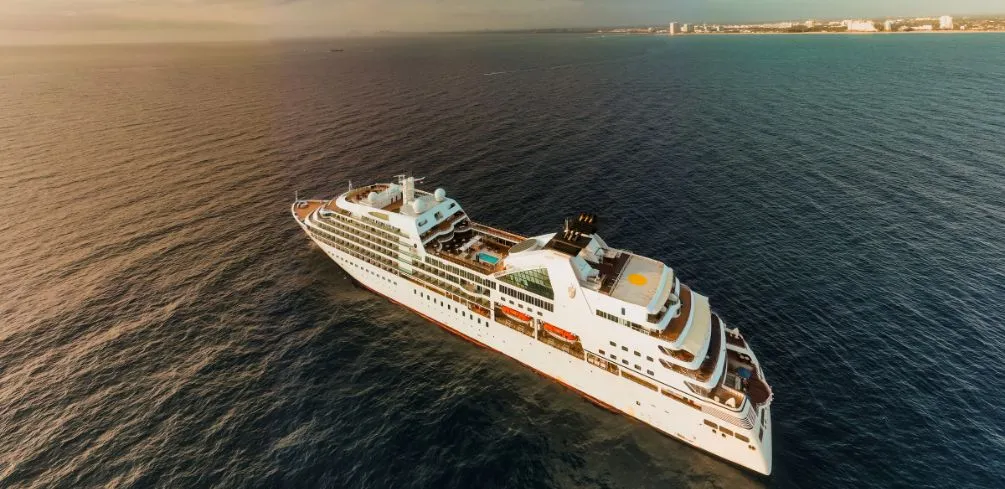Cruising has become a popular way to explore the world and its wide variety of landscapes, but it also has a negative impact on marine life. As travelers, we have the opportunity to make a positive difference in the health of our oceans. In this article, we will discuss the impact of cruising on marine life and ways to help minimize it.
We all know there are potential consequences when humans interact with nature, and cruising is no exception. Unfortunately, marine animals can suffer from pollution and noise caused by cruise ships. From oil spills to trash disposal, these activities can disrupt delicate ecosystems and harm wildlife that depends on them for food and shelter.
The good news is that there are steps we can take to reduce our impact on the environment while still enjoying the beauty of our oceans from aboard a cruise ship. By being mindful of how our actions affect marine life, we can help protect these creatures for generations to come. In this article, we will explore some ways to minimize the effects of cruising on marine life.
Definition Of Cruise Ships
Have you ever wondered what a cruise ship is? Cruise ships are large, floating vessels that take passengers on trips to different destinations.
They are one of the most popular forms of travel in the world and have become increasingly popular over the years. The cruise industry has grown exponentially since its inception, with more than 36 million people taking cruises every year.
But what exactly does a cruise ship do? Cruise ships transport passengers from one port to another, usually with multiple stops along the way.
During their journey, passengers get to experience different cultures and lifestyles while also enjoying luxurious amenities onboard the ship. Most cruise ships also offer activities such as swimming pools, spas, bars, restaurants, entertainment venues, and much more.
It’s important to note that not all cruise ships are created equal. Different types of cruise ships offer various levels of comfort and service for passengers depending on their budget and preferences.
For example, luxury cruises provide guests with top-notch service and amenities, while budget cruises may be more basic in nature. Additionally, there are regulations in place that govern how these vessels operate in order to ensure the safety of both passengers and crew members alike.
Environmental Effects Of Cruise Ships
Cruise ships have had a huge environmental impact on marine life. In addition to polluting the air and water, cruise ships generate a lot of waste that can damage the delicate balance of the marine ecosystem.
Here are some of the primary ways in which cruise ships cause harm to our oceans:
- Cruise ship pollution: Cruise ships produce large amounts of emissions such as sulfur dioxide, nitrogen oxides, and carbon dioxide. These pollutants contribute to global warming, acid rain, and smog production. They also damage coral reefs and create dead zones in the ocean.
- Marine ecosystem damage: Cruise ships release oil and other pollutants into the ocean that can harm fish, birds, and other marine life. Excessive noise from cruise ship engines can disturb whales and dolphins as well. Additionally, anchoring over fragile habitats can cause irreparable damage.
- Air pollution emissions: Cruise ships emit a significant amount of greenhouse gases and other pollutants into the atmosphere. This has a direct effect on climate change as well as an indirect effect through acid rain and ozone depletion.
- Water contamination: Cruise ship wastewater contains high levels of bacteria and debris that can contaminate nearby shorelines or coral reefs. Additionally, when the sewage is discharged directly into the ocean, it increases bacteria levels in the water, which can be harmful to fish and other aquatic organisms.
- Cruise ship waste: Cruise ships generate an enormous amount of solid waste, including plastic bottles, cans, food wrappers, and medical waste that is often dumped directly into waterways or left ashore on beaches. This type of pollution is particularly dangerous because it can take hundreds of years to decompose naturally.
Cruise ship pollution has become an increasingly serious problem in recent years due to their sheer number and size; they now account for approximately 3% of global shipping traffic yet produce more than 8% of all maritime-related air pollution emissions worldwide.
We must find ways to minimize their environmental impact if we hope to protect our oceans for future generations. One way this could be done is by using cleaner fuels such as liquefied natural gas (LNG) or biofuels to reduce greenhouse gas emissions from cruise ships; another option would be for governments to implement stricter regulations on cruise ship waste management practices such as requiring them to dispose of their garbage responsibly instead of dumping it in waterways or leaving it ashore on beaches.
Finally, governments should also consider instituting economic incentives for cruise lines that choose environmentally friendly practices such as using renewable energy sources or investing in sustainable technologies like solar panels or wind turbines onboard their vessels instead of relying on fossil fuels alone.
Strategies To Reduce Impact On Marine Life
When it comes to reducing the impact of cruising on marine life, there are a few strategies that can be implemented. Firstly, cruises should invest in more sustainable practices.
This could include implementing technology that reduces emissions and investing in eco-tourism. By doing this, they will be helping to reduce the environmental damage caused by their vessels.
Secondly, cruise companies should invest in proper waste management systems. They should ensure that all waste is disposed of properly and responsibly instead of dumping it into the ocean, where it can harm marine life. Cruise companies should also invest in education programs for their passengers, so they are aware of the impact of their actions on marine life.
Finally, cruise companies should support organizations dedicated to protecting and conserving marine species and their habitats. By doing this, they will help protect the environment and promote sustainable tourism practices for future generations.
Being a responsible tourist means respecting nature and taking steps to minimize our impact on the environment. With these simple steps, we can all do our part to make sure our oceans stay healthy for many years to come.
Alternatives To Cruising
Transitioning from the previous section, let’s delve into the alternatives to cruising that can reduce the impact on marine life. According to a recent survey, over 6 million Americans took an ocean voyage in 2019, resulting in significant environmental damage. This highlights the need for sustainable travel options that don’t involve large-scale cruises.
Fortunately, there are many eco-tourism and cruise alternative options available today. These range from small-scale sailing trips to luxury yacht charters. For those looking to explore the sea without the environmental burden of traditional cruises, these alternatives offer a great way to do so.
Below is a summary of some of the most popular cruise alternatives:
| Cruise Alternatives | Pros | Cons |
|---|---|---|
| Small Scale Sailing Trips | More intimate experience with fewer people; less strain on the local environment; potential for wildlife spotting and learning about marine ecology | It can be expensive if you don’t have your own boat; it can be time-consuming; it may lack amenities found on larger vessels. |
| Luxury Yacht Charters | Comfort and convenience of high-end amenities; more control over itinerary; access to remote and exclusive locations not accessible by traditional cruises | It can be expensive if you don’t have your own boat, must have prior boating experience, or bring along someone who does; it still has environmental impacts such as fuel consumption. |
These cruise alternatives provide an excellent opportunity for travelers who want to explore the sea while minimizing their environmental footprint. With these options in mind, it’s clear that there are ways to enjoy ocean voyages without compromising marine life and ecosystems.
Regulating The Cruise Industry
We must work to ensure that the cruise industry is properly regulated in order to protect marine life and our environment. Regulating the cruise industry will help to minimize the negative impact of cruising on the environment.
Here are three ways we can do this:
- Establishing clear environmental protection regulations: Cruise companies must be held accountable for adhering to specific environmental protection regulations, including limits on emissions, pollution, and waste disposal.
- Strengthening cruise industry policies: Cruise companies should strengthen internal policies regarding conservation practices and responsible tourism. These policies should also cover important topics such as animal welfare and passenger safety.
- Introducing stringent cruise industry legislation: Stringent laws should be introduced at both national and international levels to ensure that cruise ships adhere to safety standards and respect local cultures and ecosystems.
These measures will help protect marine life from the negative impacts of cruising while allowing people to continue to enjoy their vacations at sea. We must take action now if we want to ensure that our oceans remain clean, healthy, and safe for future generations.
Frequently Asked Questions
What Is The Economic Impact Of Cruising On Local Communities?
The economic impact of cruising on local communities is a pressing issue in today’s world. From the effects of Covid-19 to the influx of travelers, cruise ships have a definite influence on the livelihoods of those who depend on tourism for their income.
By examining the current situation and potential solutions, we can better understand how to keep these communities thriving while navigating the complexities of modern traveling.
Cruise ships have both positive and negative impacts on local economies. On the one hand, they bring in revenue from travelers, providing a source of income for businesses and employees alike.
However, this kind of travel can also be disruptive to ecosystems and disrupt local cultures by introducing foreign goods and services into the area. As such, it is important to consider both sides when examining the economic impact of cruising on local communities.
In recent years, more attention has been paid to sustainable tourism practices that minimize disruption to existing ecosystems and cultures. In addition, many cruise lines are taking steps to reduce their environmental footprint by investing in green initiatives like reducing fuel consumption and waste production.
These efforts can help ensure that local communities benefit from cruise ship visits while minimizing any potential damage they may cause. As we move forward, it is important that both travelers and destination areas work together to ensure a sustainable balance between economic growth and environmental protection.
What Are The Potential Long-Term Impacts Of Cruise Ships On Marine Life?
Cruise ships have become an increasingly popular form of vacation, but they can also have a serious impact on the marine environment. As the popularity of cruising continues to rise, it is important to understand the potential long-term impacts on marine life. This includes marine pollution, waste disposal, underwater noise, coral damage, and marine debris.
When cruise ships are in operation, they generate significant amounts of waste that are often discharged into the ocean. This may include sewage and other industrial pollutants, such as oil and chemicals, which can be highly toxic to marine organisms.
In addition to this type of pollution, cruise ships also contribute to underwater noise pollution, which can disrupt the behavior of certain species as well as disrupt their breeding and feeding cycles.
The disruption caused by cruise ships doesn’t stop there; they can also cause physical damage to coral reefs due to their large size and anchor dragging when docking. Furthermore, cruise ships produce large amounts of non-biodegradable trash that are often left behind on beaches or in the ocean.
All these issues combined can create an immense strain on local ecosystems which may not be able to recover from the influx of pollutants for many years.
It’s clear that there are several potential long-term impacts associated with cruise ship activities that could have detrimental effects on marine life if not properly managed and monitored. To help mitigate these issues, it is essential for governments and businesses alike to take necessary steps in order to reduce their environmental footprint and protect our oceans for future generations.
How Can Cruise Ships Reduce Their Energy Consumption While Still Providing A Comfortable Experience?
Cruise ships have the potential to have a long-term negative impact on marine life, but there are ways to reduce their energy consumption while still providing a comfortable experience.
Several changes could be made to minimize the impact of cruise ships on marine life and the environment:
- Increase the efficiency of engines and propulsion systems.
- Implement renewable energy sources such as wind or solar power.
- Reduce energy usage by automating certain processes onboard.
- Utilize existing technology to improve fuel economy and reduce air pollution from exhaust gases.
Making these changes can help reduce the impact of cruise ships on marine life, as well as benefit passengers by making their experience more comfortable and enjoyable. Cruise ships can be designed in such a way that they use less energy while still providing a luxurious experience for passengers.
Furthermore, improving fuel efficiency can lead to lower prices for customers, making cruises more accessible and attractive to those looking for an excellent vacation experience at an affordable price.
By taking steps to improve engine efficiency, implementing renewable sources of energy, reducing energy usage through automation, and utilizing existing technology, cruise ships can reduce their environmental footprint while still offering an enjoyable cruise experience for passengers.
In this way, everyone involved can benefit from improved sustainability practices that protect our oceans and marine life while ensuring a quality holiday experience at a reasonable cost.
How Can Travelers Be Informed About The Environmental Effects Of Their Cruise Before Booking?
As a traveler, it’s important to be informed about the environmental effects of your cruise before booking. Cruise ships often have large energy consumption, and the environmental impact of their operations can be significant. This means that travelers should look into what kind of information is available on the cruise ship’s environmental impact before they make a decision to book.
Fortunately, there are ways for travelers to access this information and become more informed about their cruise before they book. Many cruise companies offer a variety of resources online that can provide useful information regarding the environmental effects of their services.
For example, if a traveler wants to know how much energy their cruise is using, they may be able to find out by reading through the company’s website or talking to customer service representatives. By taking the time to do research on the cruise ship’s energy consumption, travelers can make an informed decision about whether or not their choice of vacation is best for them and for the environment.
In addition to researching the energy consumption of a particular cruise ship, travelers should also take into account other environmental factors, such as waste management and water usage, during their research. Doing so will ensure that travelers are well-informed about all aspects of their trip, from start to finish.
Furthermore, travelers should also consider participating in eco-friendly initiatives offered by some cruises, such as tree-planting or beach cleanups, which help minimize any potential negative impacts on marine life.
By doing adequate research before booking a cruise, travelers can make sure that they’re making an environmentally conscious decision when planning their vacation while still having an enjoyable experience onboard!
How Have Cruise Ships Adapted To Mitigate Their Environmental Impacts Due To The Covid-19 Pandemic?
As the world continues to grapple with the effects of the COVID-19 pandemic, cruise ships have been forced to make significant adaptations to mitigate their environmental impacts. With strict regulations in place that limit their capacity and destinations, many companies are looking for ways to reduce their carbon footprint and be more sustainable.
Cruise ship operators are investing in new technologies, such as fuel-efficient engines and advanced recycling systems, as well as embracing alternative energy sources like solar panels and wind turbines.
Cruise ships are also taking measures to reduce air pollution by using cleaner fuel types, reducing engine emissions, and installing scrubbers to capture harmful particulates from exhaust gases. These efforts have helped reduce nitrogen oxide emissions by up to 95% while also improving air quality onboard ships.
Plus, cruise lines are now starting to use water treatment systems that eliminate waterborne contaminants before they can enter the ocean or be discharged into shorelines.
In an effort to protect marine life, many cruise companies have removed plastic products from vessels and replaced them with biodegradable alternatives. They are also instituting policies that prohibit passengers from bringing single-use plastics onboard or disposing of items overboard that could endanger wildlife, such as balloons and fishing lines.
Cruise ship operators are even engaging in beach cleanups around ports of call when possible in order to combat littering on land.
These strategies demonstrate how the industry is responding proactively to manage its environmental impact during the pandemic sustainably. The collective efforts of these initiatives serve as a reminder that it’s possible for businesses in any sector to take meaningful steps toward protecting our planet’s resources for future generations.
Conclusion
In conclusion, cruising has a profound impact on marine life and local communities. It is important that travelers become educated about the potential effects of their cruise before booking.
Cruise ships can reduce their energy consumption while still providing a comfortable experience. Furthermore, they have adapted to mitigate their environmental impacts due to the COVID-19 pandemic.
Ultimately, cruising has the potential to be an exciting yet responsible way for travelers to explore new places and cultures; however, this requires all involved parties to be aware of the environmental impacts associated with cruising and make efforts to reduce them.
As Mahatma Gandhi once said, “there is enough in the world for everyone’s need but not enough for everyone’s greed.” This quote applies directly to the industry of cruising: we must be mindful of our consumption when it comes to tourism and its effect on marine life and local communities.
We have a responsibility to protect the environment and take into account our consumption habits when it comes to travel. By doing so, we can ensure that future generations will have access to beautiful places and cultures around the world without fear of destruction or exploitation by human activities such as tourism.
